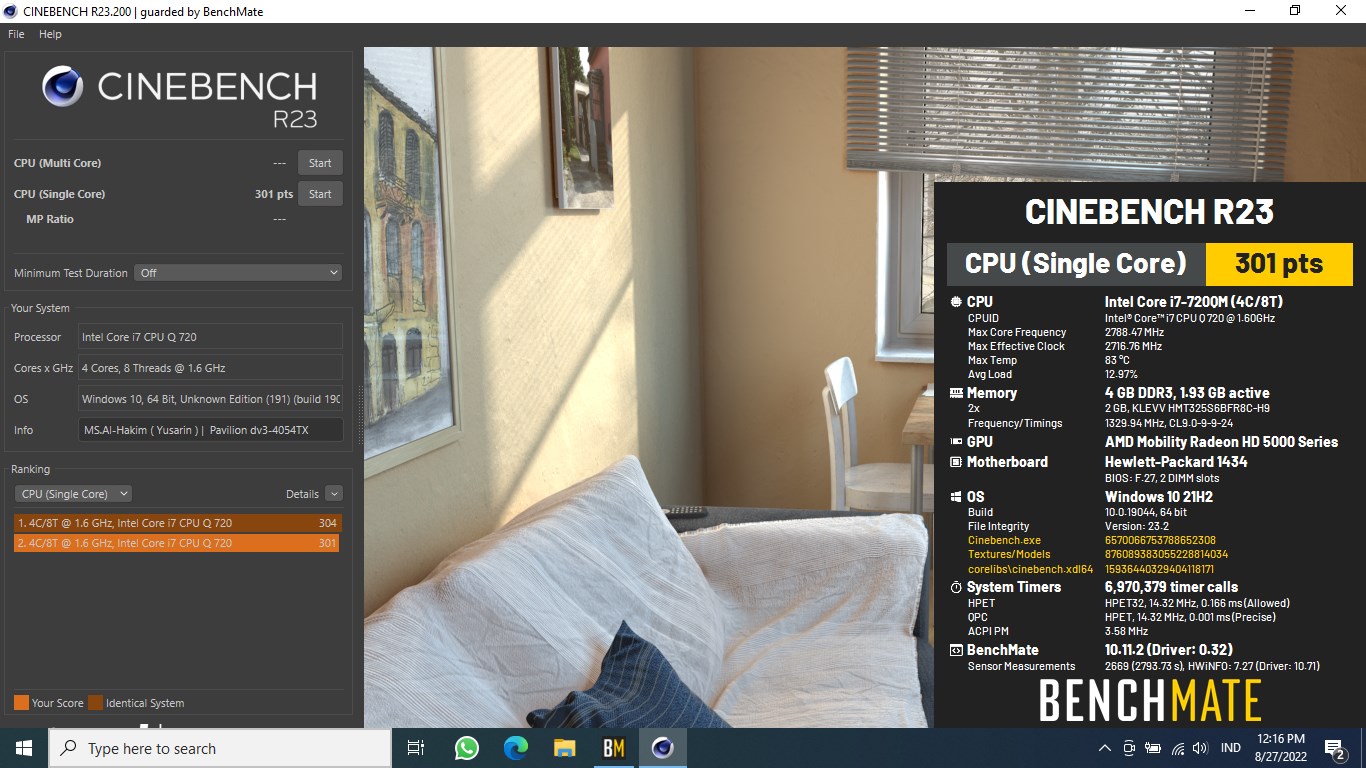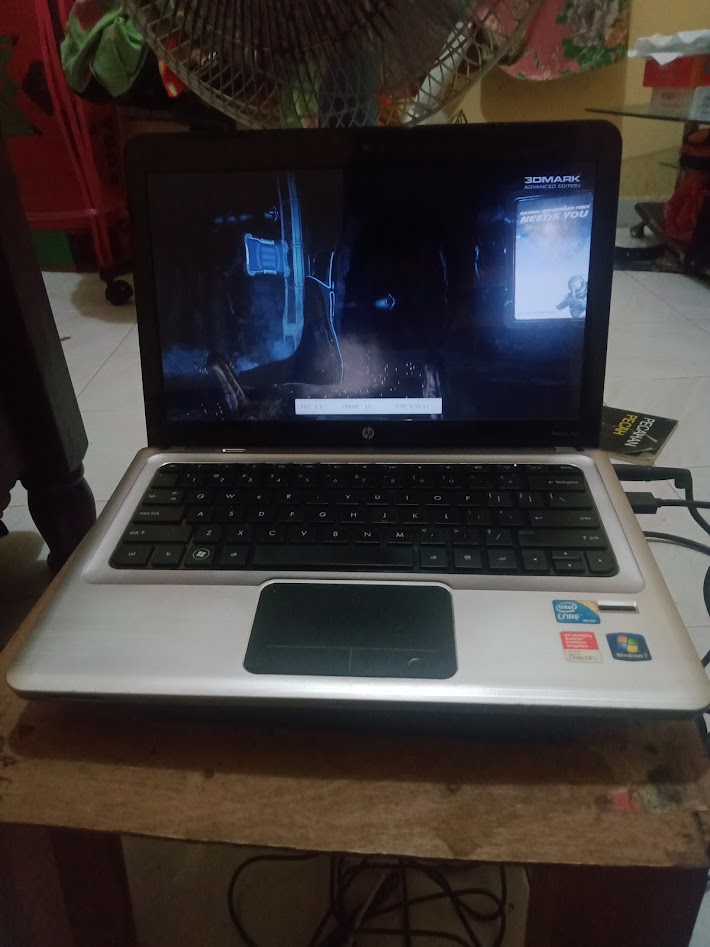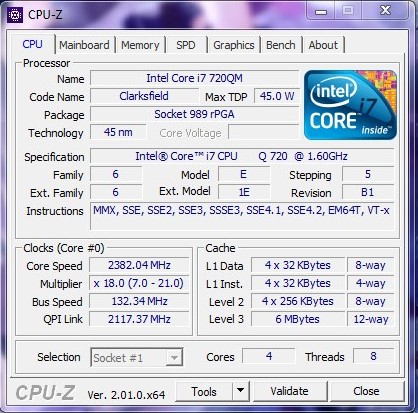Cinebench - R23 Single Core with BenchMate score 301 pts with a i7-720QM
Thursday, 01 January 1970 07:00 | Update at null
Media Gallery
Screenshot

Device, Setup, etc



URL
https://hwbot.org/submission/5068737https://bit.ly/3QWCB0N
Information Detail
Hardware: Intel Core i7 720QM
Specs:CPUID : Intel(R) Core(TM) i7 CPU Q 720 @ 1.60GHz
Architecture : x86
Codename : Clarksfield
L3 Cache : 6MB
Clock : 1.60GHz - 2.80GHz
Core/Thread : 4/8
TDP : 45W
Technology : 45nm
Socket : PGA988
IGPU : -
See more specification...
Software: Cinebench - R23 Single Core with BenchMate
Score: 301 pts
About: Cinebench - R23 Single Core with BenchMateCinebench R23 Single Core with BenchMate is a benchmark designed to accurately and safely measure the single-core (single-threaded) performance of a processor. The combination of Cinebench R23, the official benchmark from Maxon, and BenchMate, an independent benchmark validation platform, provides reliable and manipulation-free test results. This makes it one of the best methods for evaluating the per-core efficiency of modern processors in real-world conditions.
In this test, only one thread of the CPU is used to render a complex 3D scene. The results illustrate how quickly and efficiently a single processor core can handle heavy tasks, such as those commonly found in lightweight applications, game logic, interface processing, or professional software that does not fully support multi-core processing. The final score is displayed in points (pts), and the higher the score, the better the single-thread performance of the CPU.
Integration with BenchMate ensures the integrity of the results obtained. BenchMate ensures that there are no system time changes, extreme voltage adjustments, or other software manipulations that could falsify benchmark scores. This makes Cinebench R23 with BenchMate highly trusted by the overclocking community, hardware reviewers, and IT professionals who rely on accurate data to assess system performance.
Overall, Cinebench R23 Single Core with BenchMate is an essential tool for anyone looking to measure the single-core power of their processor with valid, reliable, and trustworthy results. It is particularly useful for selecting the best CPU for light workloads, gaming, and everyday productivity tasks that still depend on single-core performance.
The Intel Core i7-720QM, launched in Q3 2009, was one of the first mobile quad-core processors to feature Intel's Nehalem microarchitecture, specifically the Clarksfield variant. Targeted at high-performance laptops, such as gaming machines and mobile workstations, the i7-720QM brought 4 physical cores and 8 threads to the mobile platform, thanks to Hyper-Threading Technology providing a significant boost in multi-threaded workloads like video editing, 3D rendering, and other professional-grade applications. The processor runs at a base clock speed of 1.6 GHz, but it can dynamically increase up to 2.8 GHz using Intel Turbo Boost, depending on thermal headroom and power availability.
Manufactured using a 45nm process, the i7-720QM has a TDP of 45W, which is quite high by today's mobile CPU standards. This thermal demand necessitated more robust cooling solutions in laptops that featured the chip. Unlike modern CPUs, the i7-720QM does not come with integrated graphics, which means systems based on this processor require a dedicated GPU often from AMD or NVIDIA for graphics processing and display output. As such, it was typically paired with mid-to-high-end discrete graphics cards in its time, making it a solid choice for gaming and multimedia laptops in the late 2000s and early 2010s.
While the Core i7-720QM was a powerhouse during its release, its performance and efficiency are significantly outpaced by modern CPUs built on smaller nodes and with higher IPC (Instructions Per Clock). Nevertheless, legacy laptops using the i7-720QM can still be viable for basic computing tasks like web browsing, document editing, or watching videos especially if paired with an SSD upgrade and increased RAM. Users running Windows 10 on such systems may experience some limitations, but with proper optimization and lightweight software, the CPU can still deliver a usable experience in non-demanding environments.
Hardware Detail:
Device: HP Pavilion dv3-4054TX
RAM: 4GB DDR3 Single Channel
OS: Windows 7, Windows 10
* Not Avaiable
